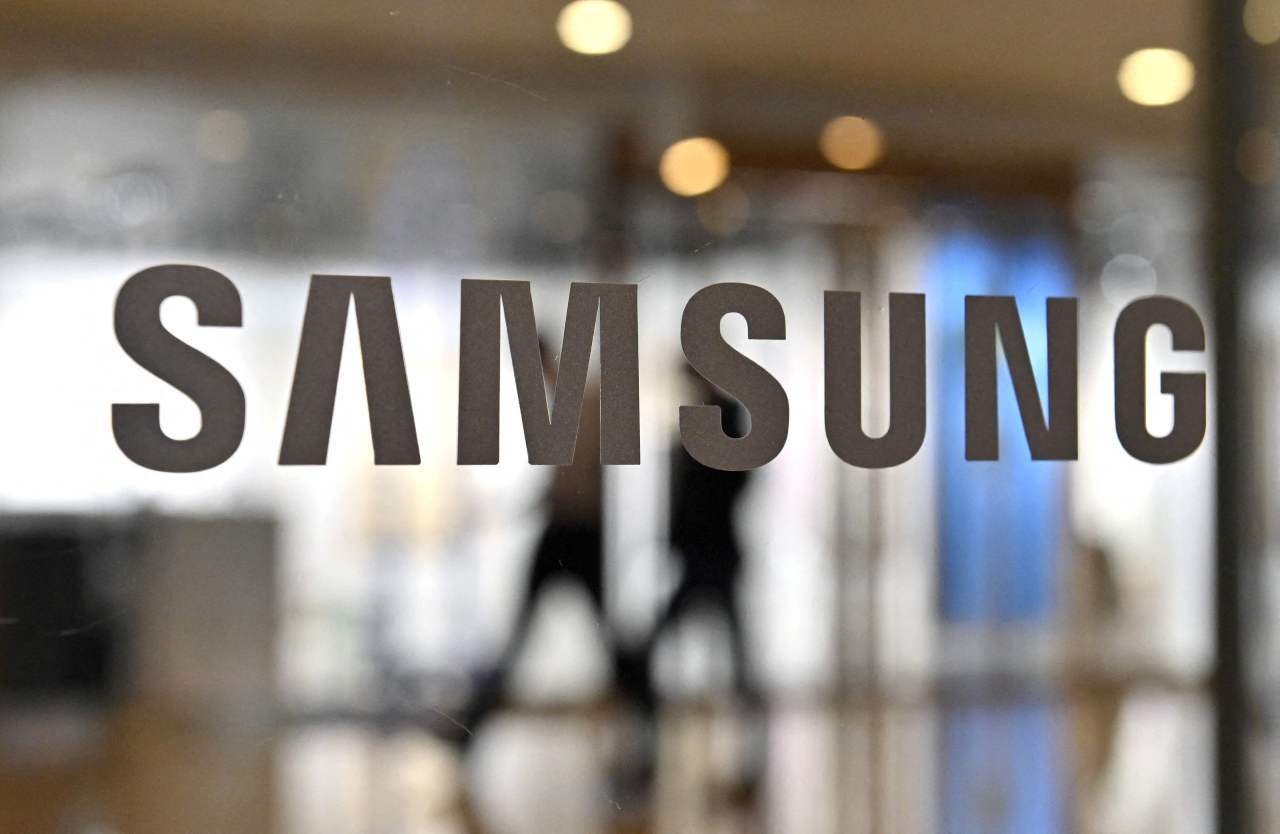 |
People walk past the Samsung logo displayed on a glass door at the company‘s Seocho building on Jan. 7 in Seoul. (AFP-Yonhap) |
Samsung Electronics shares, which account for some 18 percent of South Korea’s benchmark Kospi’s market capitalization, closed at a 52-week low on Friday hit by the prolonged global memory chip supply shortage coupled with concerns of an economic slowdown.
The market bellwether closed at its lowest price since Nov. 4, 2020 and 1.81 percent lower from the previous day’s trading at 59,800 won ($46.30). This also marks the first time it closed below the 60,000-won threshold since Nov. 4, 2020.
Foreign investors have been on a selling spree of Samsung shares since the beginning of this month to Friday, offloading a total net 2.98 trillion won in the cited period. Meanwhile, retail investors purchased a net 2.51 trillion won in the same period.
Samsung Electronics has been a popular choice for retail investors so far this year. They purchased a combined net 14.03 trillion won Samsung shares from Jan. 1 to Thursday, which accounts for 68.2 percent of the total net 20.55 trillion won Kospi shares they bought in the same period.
Brokerages have been lowering the tech giant’s target price in recent days, with Eugene Investment and Securities adjusting it to 79,000 won from the previous 88,000 won early Friday. Eugene’s move comes a day after Shinhan Investment lowered the price from 87,000 won to 83,000 won.
“Signs of a global economic slowdown are growing, and the continued rate hikes will likely to result in higher pressure on the economy in the second half of the year,” said Lee Seung-woo, head of the research center at Eugene Investment & Securities.
“Reflecting concerns of a possible economic recession, we downgraded Samsung’s operating profit forecast for this year by 4 percent from the previous 60.7 billion won to 58.3 billion won,” he added.
Lee warned that despite rosier forecasts surrounding the memory chip and foundry industry in Asia, distributors, big tech and semiconductor equipment companies continue to face obstacles in sales.
While Samsung Electronics shares were always a popular choice for Korean retail investors, more purchased shares after the company in April reported its best first-quarter earnings in four years on the back of strong chip and mobile demand.
The world‘s largest memory chip and mobile phone maker’s operating profit in the first three months jumped more than 50 percent to 14.1 trillion won on-year, a regulatory filing showed. Net income gained 58.5 percent on-year to 1.13 trillion won in the same period.
(
mkjung@heraldcorp.com)







![[Weekender] Korea's traditional sauce culture gains global recognition](http://res.heraldm.com/phpwas/restmb_idxmake.php?idx=644&simg=/content/image/2024/11/21/20241121050153_0.jpg)
